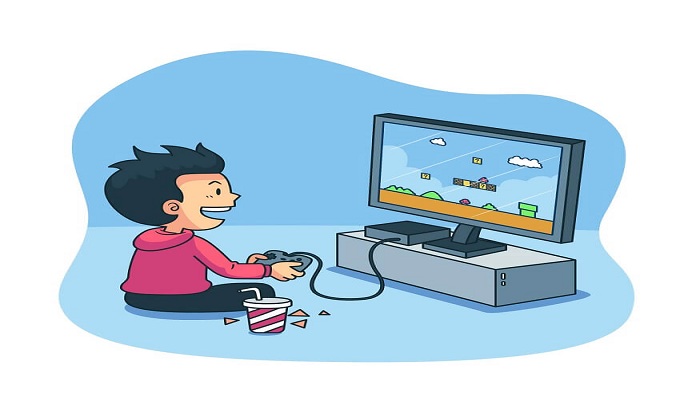Impact of Video Games in Paediatric Age Group

Impact of Video Games in Paediatric Age Group
Published On: 25-10-2024 | 4 min Read
The world of video games has become an integral part of modern childhood, with millions of children and adolescents spending hours exploring virtual worlds, conquering digital challenges, and interacting with online communities. As the popularity of gaming continues to grow, concerns have been raised about its impact on the physical, emotional, and psychological well-being of children.
"Excessive video game use can lead to addiction, social isolation, and decreased physical activity in children."
The paediatric age group, in particular, is vulnerable to the effects of video games due to their developing brains, impressionable minds, and susceptibility to influence. While video games have the potential to educate, entertain, and socialize, excessive or inappropriate gaming can lead to a range of negative consequences, including addiction, aggression, social isolation, and decreased physical activity.
NSMS NURSING INSTITUTE, can provide comprehensive care and guidance to paediatric age groupand committed to promoting healthy childhood habits. we prioritize the well-being and development of children. While video games may have some educational benefits, we strongly advise against excessive gaming in the pediatric age group due to its potential risks.
The effects of video games on mental health in the paediatric age group can be both positive and negative:
Positive Impacts:
1.Cognitive Development:
- Problem-solving skills: Strategy-based games, puzzles, and simulations can enhance children's problem-solving abilities by requiring them to think critically, plan ahead, and adapt to new challenges.
- Hand-eye coordination and motor skills: Action and sports games can improve fine motor skills and hand-eye coordination.
- Creativity: Games that involve open-world exploration, building, or sandbox environments (like Minecraft) can foster creativity and imagination.
2. Educational Value:
- Many video games are designed with educational purposes, helping children learn subjects such as math, science, history, and language through interactive content.
- Gamified learning apps can make learning more engaging for children who may struggle with traditional methods.
3. Social Skills and Collaboration:
- Multiplayer and cooperative video games encourage teamwork, communication, and collaboration among children. They often have to work together to achieve common goals.
- Online gaming communities can offer social interaction, especially for children who may find it difficult to connect with peers in face-to-face settings.
4.Stress Relief and Emotional Outlet:
- Video games can provide a sense of escape, offering children a way to unwind, relieve stress, and cope with emotions in a safe environment.
Negative Impacts:
1. Addiction: Excessive gaming can lead to addiction, social isolation, and decreased physical activity.
2. Aggression: Exposure to violent games can increase aggressive thoughts, feelings, and behaviors.
3. Sleep disturbances: Gaming before bed can disrupt sleep patterns and lead to sleep deprivation.
4. Social isolation: Excessive gaming can lead to decreased face-to-face interaction and social skills.
5. Cyberbullying: Online gaming can expose children to harassment and bullying.
6. Decreased attention span: Excessive gaming can lead to decreased focus and attention span.
7. Eye strain and physical health: Prolonged screen time can cause eye strain, headaches, and decreased physical activity.
8. Unrealistic expectations: Games can create unrealistic expectations and promote consumerism.
9. Desensitization: Exposure to violent games can lead to desensitization and decreased empathy.
10. Mental health concerns: Excessive gaming can contribute to depression, anxiety, and other mental health concerns.
Parental Guidelines:
1. Set limits and monitor gaming time.
2. Encourage physical activity and outdoor play.
3. Choose age-appropriate games.
4. Educate children about online safety and cyberbullying.
5. Engage in gaming with your child to promote bonding and understanding.
6. Encourage balanced gaming habits.
7. Monitor for signs of addiction or negative effects.
8. Provide alternative activities and hobbies.
9. Set clear rules and consequences.
10. Stay informed about the latest gaming trends and research.
This discussion aims to explore the complex and multifaceted effects of video games on children's mental health, cognitive - development, and social skills. By examining the latest research, expert opinions, and real-life examples, we will delve into the benefits and drawbacks of video gaming in the paediatric age group and provide guidance for parents, caregivers, and healthcare professionals seeking to promote healthy gaming habits and mitigate potential risks.
Remember, a balanced and healthy gaming experience is crucial for pediatric mental health.
